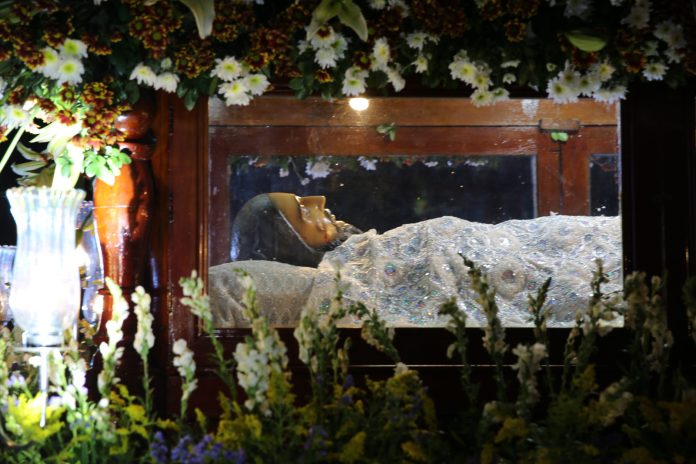“They took the body of Jesus and wrapped it with the spices in linen cloths, according to the burial custom of the Jews. Now there was a garden in the place where he was crucified… Because it was the Jewish day of Preparation, and the tomb was nearby, they laid Jesus there” (John 19: 40-42).
What does Holy Saturday mean for us?
I was following the procession of the Santo Entierro last night. The last time I did this was more than 30 years ago. It was the same image of the Dead Jesus that I followed since childhood. It is the same “karo” which resembles the “porlon” used to carry coffins to the cemetery before the funeral homes started using funeral cars. The “porlon” was pushed or drawn by the relatives of the deceased. It was also the same band that played or, maybe they were sons and daughters of the old band members I knew, because they looked younger. They played the same kind of Tenebrae music which they usually play as they follow any funeral in this town.
I have followed the funeral of my Mama and Papa, also my lolo and lola, and walked in this same road all the way to the cemetery with the same band playing. The first street of that procession from the Church to the cemetery is actually called “Calle Eternidad.” It would have been a hopeful and symbolic name! But you don’t actually read street names on the way to the cemetery. You can’t. You just feel the pain of one’s loss.
I have felt this before. It came back last night. It is a feeling of loss and loneliness that someone dear to me is “dead”. Regardless of the euphemism we use, he or she is “dead”. I will no longer see him or her. That person will be inside that tomb.
And like the feeling of Holy Saturday, he or she will be lifeless, silent, dead silent. Until that day when we see him or her again on what Christians call the “Last Day.”
What does Holy Saturday mean for us? What does it tell us about our own life and death? How does that give meaning to our present pain and loneliness?
First, Jesus “like the rest of us” waits for his Abba to raise him up, to vindicate him. Jesus did not raise himself up. He waited and God raised him up from the dead as St. Paul says (Rom. 10: 9).
Second, the solemn silence of the Holy Saturday is God’s act of solidarity with those of us who are in the state of “tragic waiting” for our own resurrections which is promised but has not come yet – for justice long denied, for the healing of pain of loss, for evil people not to triumph. If Jesus has waited and his God came to raise him up, there is also hope for us in our own hopelessly tragic situations.
I remember what one widow of an EJK victim told me: “Magpapatuloy po ako. Masakit po. Pero balang araw, magkakaroon din ng hustisya. May awa po ang Diyos. Laban lang!”
Third, the Apostles Creed which we recite every Sunday says: “He suffered under Pontius Pilate, was crucified, died, and was buried.” Then it continues: “He descended to hell.” Sometimes, we do not mind this verse and immediately glide to the next sentence. But when we stop, we ask: Did he or did he not? Really?
This important article of faith must be significant. What does this mean? Jesus’ descent into hell is not meant to liberate souls of the just waiting for the Messiah. That is too much work for someone who is dead. His presence among expresses his loving identification with sinners who abandoned God.
The great theologian, Hans Urs von Balthazar writes: “Exactly in that way he disturbs the absolute loneliness striven for by the sinner: the sinner, who wants to be ‘damned’ apart from God, finds God again in his loneliness. God in the absolute weakness of love unfathomably in the period of non-time enters into solidarity with those damning themselves.”
Simply put, Jesus goes to “hell” with us if only to show the depth of God’s love. However strong is the power of human freedom to reject God, it is not strong enough to prevent God from truly loving the sinner… even in “hell.”
Even as we painfully wait, God is in solidarity with the loneliness of our waiting. God will soon vindicate us.
Father Daniel Franklin Pilario, C.M., is a theologian, professor, and pastor of an urban poor community in the outskirts of the Philippine capital. He is also Vincentian Chair for Social Justice at St. John’s University in New York. The opinions and views expressed in this article are those of the authors. They do not purport to reflect the opinions or views of LiCAS News or its publishers.









